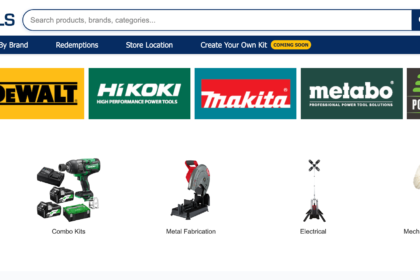Before diving into formulas and labels, it’s important to know who you’re selling to. Understanding your ideal customer is the base for a successful private-label supplement brand. It shapes your product development, marketing, and sales strategies.
Identifying Your Niche Market
Don’t try to be everything to everyone. Focus on a specific niche within the supplement market. This could be anything from vegan protein powders for athletes to sleep aids for busy professionals.
- Consider demographics like age, gender, and location.
- Think about lifestyle factors such as fitness level and dietary preferences.
- Niche focus allows for targeted marketing and efficient resource allocation.
Understanding Customer Needs and Pain Points
What problems are your potential customers trying to solve? What are their biggest frustrations when it comes to health and wellness? Really understanding these pain points is key to creating a product that resonates.
- Conduct surveys and interviews to gather direct feedback.
- Analyze online forums and social media groups to identify common concerns.
- Use this information to develop supplements that address specific needs.
Analyzing Current Purchasing Habits
Where do your ideal customers currently buy their supplements? What brands do they trust? What are they willing to pay?
- Research popular online retailers and brick-and-mortar stores.
- Examine competitor pricing and product offerings.
- This analysis will inform your pricing strategy and distribution channels for your custom private‑label supplements.
Assess the Competitive Landscape
It’s important to know what’s already out there. Understanding the competition is key to making your private-label supplement brand stand out. This step helps identify opportunities and potential pitfalls.
Researching Existing Products
What supplements are already available? Look at the ingredients, claims, and target markets. This research will inform your product development and marketing strategies.
- Analyze best-selling supplements.
- Identify common ingredients.
- Note customer reviews and ratings.
Identifying Market Gaps
Where are the unmet needs? Are there specific health concerns not adequately addressed? Finding these gaps is how you can create a unique and desirable private-label supplement.
- Look for underserved demographics.
- Identify trending health concerns.
- Consider ingredient combinations not yet explored.
Determining Competitive Pricing
How much are similar supplements selling for? Price your products competitively while maintaining profitability. Consider your target market’s willingness to pay.
Pricing too high can deter customers, while pricing too low can devalue your brand. Finding the right balance is essential for success.
- Research pricing strategies of competitors.
- Calculate your production costs.
- Determine your desired profit margin.
Formulate Your Custom Private-Label Supplements
This is where the magic happens. It’s about turning ideas into tangible products. It’s an exciting phase for any entrepreneur. It requires careful planning and execution.
Developing Unique Product Formulas
Think beyond the basics. What makes your custom private-label supplements stand out? Consider unique ingredient combinations.
- Research novel ingredients.
- Explore different dosages.
- Consider synergistic effects.
A well-researched formula is the foundation of a successful supplement brand.
Partnering with a Private Label Manufacturer
Choosing the right partner is key. A good manufacturer offers expertise and resources. They can guide you through formulation and production.
- Check their certifications.
- Ask about their quality control processes.
- Discuss minimum order quantities.
Focusing on Product Quality and Scalability
Quality builds trust. Scalability ensures long-term growth. Don’t cut corners on either.
- Use high-quality ingredients.
- Implement rigorous testing.
- Plan for increased production as demand grows.
Prioritize quality to build a loyal customer base for your custom private-label supplements.
Choose Your Production Strategy
Evaluating In-House Production vs. Manufacturing Partnerships
So, you’ve got your supplement idea. Now, how do you actually make it? Two main paths exist: doing it yourself (in-house) or teaming up with a manufacturer. Each has pros and cons.
In-house production means more control. You oversee every step, from sourcing ingredients to bottling. But, it also means big investments in equipment and staff.
Manufacturing partnerships, on the other hand, let you focus on marketing and sales. The manufacturer handles the production side. It’s often faster and cheaper, especially when starting out with your custom private-label supplements.
Considering Co-Packing Options for Growth
As your brand grows, consider co-packing. Co-packers handle packaging and fulfillment. This frees up your time and resources.
Co-packing can be a game-changer. It allows you to scale production without massive capital investments. Plus, they often have established relationships with suppliers.
Think of it as outsourcing the final steps. You still control the formula and branding, but someone else handles the logistics. This is especially useful for custom private-label supplements.
Balancing Control and Efficiency
Finding the right balance is key. Do you want total control, or maximum efficiency? It’s a trade-off.
In-house gives you control, but it can be slow and expensive. Manufacturing partnerships and co-packing offer efficiency, but you give up some control.
Consider your budget, timeline, and long-term goals. The best production strategy aligns with your overall business plan for your custom private-label supplements.
Establish Your Brand Identity
Your brand is more than just a logo; it’s the feeling people get when they think about your private-label supplements. It’s about trust, quality, and what makes you different. Let’s make sure your brand stands out.
Understanding Supplement Label Requirements
Supplement labels aren’t just pretty stickers. They’re legal documents. The FDA has rules about what needs to be on there, from ingredients to serving sizes.
- Product name and description.
- Net quantity of contents.
- Manufacturer, packer, or distributor name and address.
Make sure you’re following all the rules to avoid problems down the road. It’s a must for your private-label supplements.
Designing Eye-Catching Packaging and Labels
Packaging is your first chance to grab someone’s attention. Think about your ideal customer. What colors, fonts, and images would appeal to them?
- Use high-quality images.
- Keep it simple and easy to read.
- Make sure it reflects your brand’s personality.
Good design can make a huge difference in sales. Don’t skimp on this part.
Selecting a Reliable Label Printing Partner
Finding the right printer is key. You need someone who can deliver high-quality labels on time and within budget. Look for a printer with experience in supplement labels.
Consider their turnaround times, printing capabilities, and customer service. A good printer will be a partner, not just a vendor.
It’s important to get samples and check the quality before committing to a large order. This ensures your private-label supplements look professional.
Develop a Comprehensive Marketing Strategy
Targeting Your Audience Effectively
It’s time to spread the word about the new private-label supplements! But who should hear it? Don’t just shout into the void. Pinpoint the ideal customer.
Think specific. Instead of “health nuts,” try “marathon runners needing joint support.” This focus sharpens the marketing strategy.
Knowing the customer inside and out makes the message hit home. It’s about speaking directly to their needs.
Creating Engaging Content
Content is king, especially for private-label supplements. It’s not enough to just say “buy this.”
Tell a story. Show the benefits. Educate the audience. Make them want the product.
High-quality content builds trust and establishes the brand as an authority. This is a key part of any successful marketing strategy.
Exploring Diverse Marketing Channels
Don’t put all eggs in one basket. Explore different ways to reach the target audience.
Social media is a must. But also consider email marketing, influencer collaborations, and even old-school print ads.
Each channel has its strengths. The right mix maximizes the reach of the marketing strategy.
Select Your Sales and Distribution Channels
Choosing the right sales and distribution channels is key for getting your custom private-label supplements into the hands of your customers. It’s not just about where you sell, but how you reach your target audience and manage logistics.
Leveraging E-commerce Platforms
E-commerce platforms offer a direct route to consumers. Setting up shop on platforms like Shopify, Amazon, or Etsy can provide immediate access to a broad customer base. It’s important to consider the fees, competition, and marketing tools available on each platform.
Think about how you’ll handle shipping and customer service. A smooth online experience is crucial for repeat business.
Considering Retail and Brick-and-Mortar Options
Getting your supplements into physical stores can boost visibility and credibility. This could mean approaching local health food stores, gyms, or even larger retail chains.
- Negotiate favorable terms with retailers.
- Ensure your packaging meets their requirements.
- Consider offering exclusive products or promotions for brick-and-mortar locations.
Brick-and-mortar stores offer a tangible shopping experience. Customers can see, touch, and ask questions about your products.
Optimizing Distribution for Custom Private-Label Supplements
Efficient distribution is vital for managing costs and ensuring timely delivery. This might involve partnering with a third-party logistics (3PL) provider or setting up your own warehousing and shipping system.
Consider factors like storage costs, shipping rates, and order fulfillment times. A well-optimized distribution network can significantly impact your bottom line and customer satisfaction.
Think about how you’ll handle returns and damaged products. A clear and fair return policy can build trust with your customers. The right distribution strategy is essential for the success of your custom private-label supplements brand.
Conclusion
Starting your own private-label supplement brand can seem like a lot of work, but it’s definitely something you can do. With some good planning and hard work, you can build a successful business. It’s all about doing your homework and sticking with it. You’ve got this!
For More Information Visit Timelymagazine








